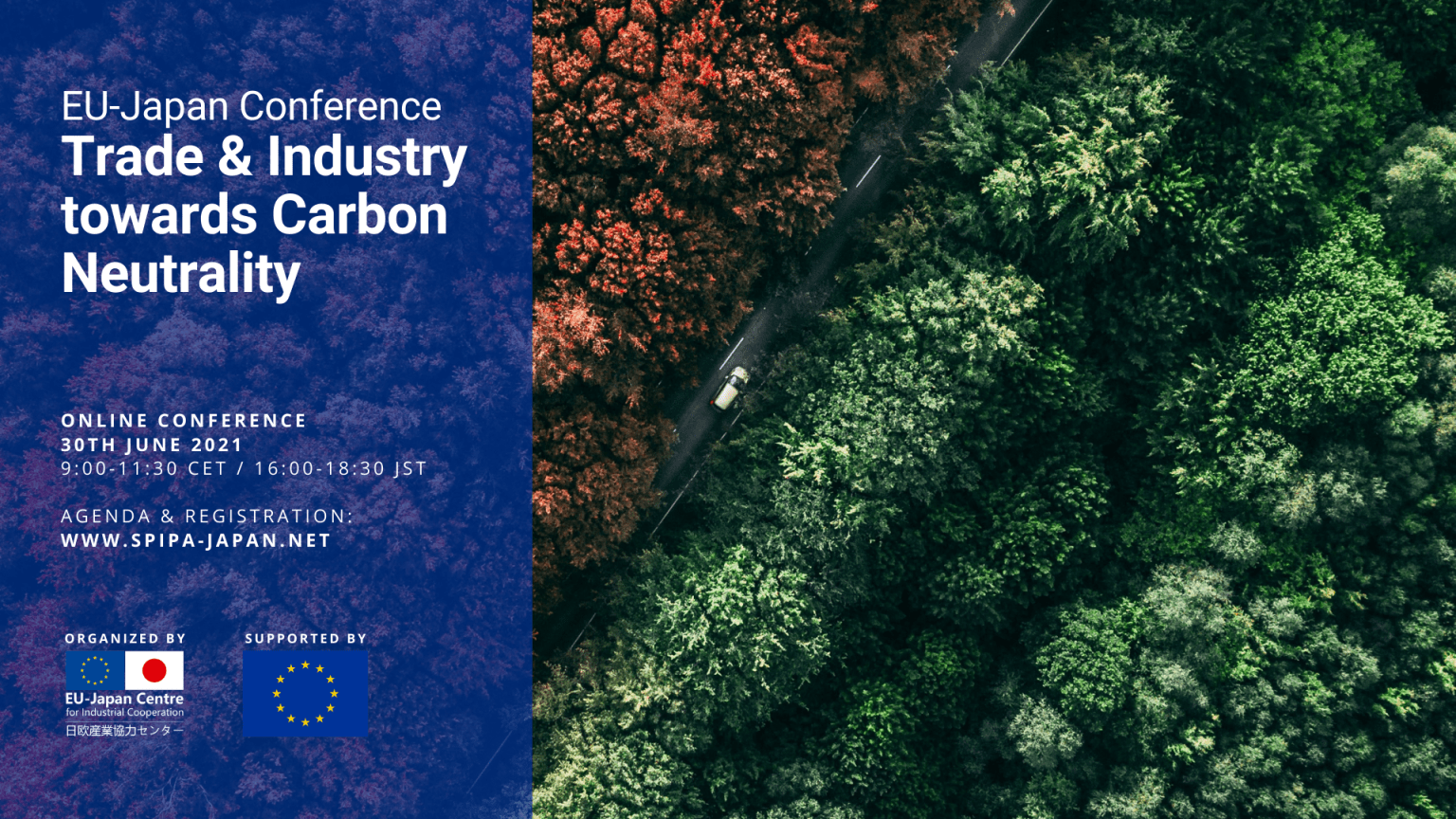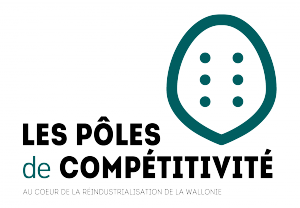
Japan and the EU share the objective of reaching carbon neutrality by 2050. Both implement policies and support investments towards this goal, building the foundation for a sustainable green growth. Innovation in clean technologies and their successful commercialization are needed for modern and competitive economies.
The EU-Japan Economic Partnership Agreement signed in 2018 creates an open trade zone covering over 600 million people and a third of the global value of goods and services. This agreement reaffirms the shared commitment of the EU and Japan to sustainable development. As such, it can contribute to promoting trade and investment between Europe and Japan, in industrial solutions for a decarbonized society.
Businesses from both sides already work together in a number of sectors contributing to decarbonization, such as renewable energy, hydrogen or clean mobility. This cooperation can be expanded, to the benefit of an accelerated, cost-effective, large scale deployment of low-carbon industrial solutions in the EU, Japan and other regions.
Building on the strength of bilateral trade, and leveraging the effect of EU-Japan cooperation on regulations and standards, the event will focus on technologies and sectors that are key to achieving carbon neutrality by 2050 in the EU and Japan: renewable energy, hydrogen, clean mobility, and the raw materials required by these industries.
It will aim at facilitating the exchanges of experiences between business representatives from the EU and Japan about the potential opportunities associated with green growth, on both markets and on the global scene.
Agenda
Moderator: Ms. Teri Schultz, international TV and radio reporter, podcast host.
Opening
- Ms. Ewa Synowiec, Director for Trade, Sustainable Development and Green Deal, DG TRADE | European Commission
- Mr. Takashi Omote, Deputy Director-General for Trade Policy and Industrial Science and Technology Policy | Ministry of Economy, Trade & Industry of Japan
Session 1: “Renewable energy: decarbonizing the economy at the source”
- Mr. David Kang, Head of Japan and Korea Research | BloombergNEF
- Mr. Gu Yoon Chung, Head of Business Development Asia Pacific, South Korea Country Manager | Enel Green Power
- Mr. Satoshi Kuwano, Executive Officer, New business Promotion & Decarbonization Community Energy Division | Kansai Electric Power Company
Renewable energy is one of the main solutions to decarbonize the economy. Its development requires that both demand and offer grow, in a virtuous circle. While initiatives such as RE100, joined by large businesses from Japan and Europe, are contributing to structure a long-term corporate demand, our speakers will address the production side, at the global scale, in Europe and in Japan. They will illustrate how the industry of renewable energy can help decarbonize all other industries, and how trade between Europe and Japan can help accelerate renewable energy deployment.
Session 2: “Hydrogen: a new vector to store and distribute low-carbon energy”
- Mr. Tim Karlsson, Executive Director | IPHE
- Mr. Jorgo Chatzimarkakis, Secretary General | Hydrogen Europe
- Mr. Hiroshi Fukushima, Senior Managing Executive Officer | Japan Hydrogen Association
To be used in vehicles, buildings and factories, renewable energy needs to be transported and stored. Hydrogen, when produced from renewable sources, is increasingly seen as a solution to transport clean energy across countries, and to store it near consumption sites. In this session, experts will highlight the latest trends: how hydrogen can contribute to a low-carbon industry in the world, in Japan and in Europe. And how can international trade of hydrogen be organized to facilitate the adoption of this energy vector as a tool for truly decarbonized economies?
Q&A: “Clean energy for clean industries, transports and buildings”
Interactive session with the 6 speakers from Sessions 1 & 2.
How can the EU and Japan work together for an accelerated contribution of renewable energy and hydrogen to decarbonized industries, transports and buildings in Europe, Japan and other regions? How do the efforts of Europe and Japan in this regard fit in the global landscape?
Session 3: “Transport: towards zero-emission mobility”
- Dr. Ruth Heuss, Senior Partner | McKinsey & Company
- Mr. Lutz Rothhardt, Director of Development Japan | BMW Group
- Mr. Ferry Franz, Head of Hydrogen Affairs | Toyota Motor Europe
One of the sectors where renewable hydrogen could be used as a solution for decarbonization is transport. Other solutions include battery electric vehicles, new approaches to public transport such as mobility-as-a-service, new materials for the manufacturing of vehicles, and more. This session will focus on the example of the automobile industry: how do car manufacturers worldwide, in Europe and in Japan transform their long-established fossil-based models and introduce new technologies to produce low-carbon vehicles? How could bilateral trade between Europe and Japan in the automobile industry contribute to further, accelerated reductions of greenhouse gases emissions of cars?
Session 4: “Raw materials for decarbonized economies”
- Mr. Rodolfo Lacy, Environment Director | OECD
- Mr. Atsuya Hanazawa, President Japan | Umicore
- Mr. Minoru Hasegawa, Assistant General Manager, Inorganic Chemicals Department, Chemicals Division | Sojitz Corporation
Solar panels, wind turbines, batteries, smarter grids, smarter vehicles… Many technologies required for the transition to decarbonized economies need non-renewable raw materials, such as rare-earth metals. By definition, these materials are available in limited quantities. Their extraction is also a source of energy consumption and CO2 emission. In this session, experts will discuss how strategies can be implemented to guarantee sufficient availability of the required raw materials, and how their extraction, trade and recycling can be managed to ensure the lowest environmental impact, on the full lifecycle of products.
Q&A: “Zero carbon over the full lifecycle of goods and services”
Interactive session with the 6 speakers from Sessions 3 & 4.
From raw materials extraction to the end-use of technologies such as zero-emission vehicles, how do the European and Japanese industries position themselves on the global scene, towards a truly decarbonized lifecycle of goods and services? How can multilateral or bilateral trade rules facilitate the establishment of low-carbon supply chains? How does a circular approach contribute to a more virtuous model?
Closing
- Mr. Takashi Omote, Deputy Director General | Ministry of Economy, Trade & Industry of Japan
- Mr. Joaquim Nunes de Almeida, Director for Mobility & Energy Intensive Industries, DG GROW | European Commission
- Ms. Elina Bardram, Acting Director for International Mainstreaming and Policy Coordination, DG CLIMA | European Commission
Information & Registration
- Date: Wednesday 30th June | 9:00-11:30 CET / 16:00-18:30 JST
- Platform: Zoom
- Language: English and Japanese with simultaneous interpretation
- Registration is free


